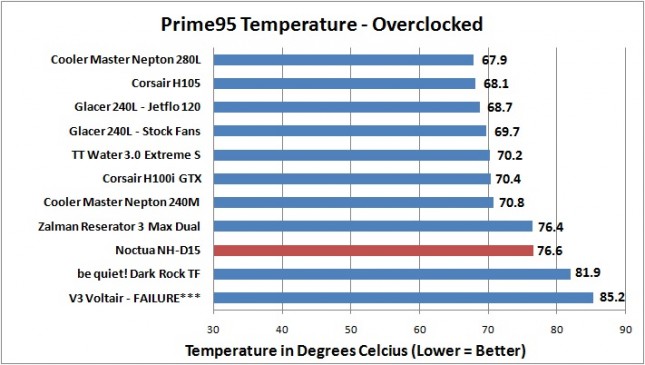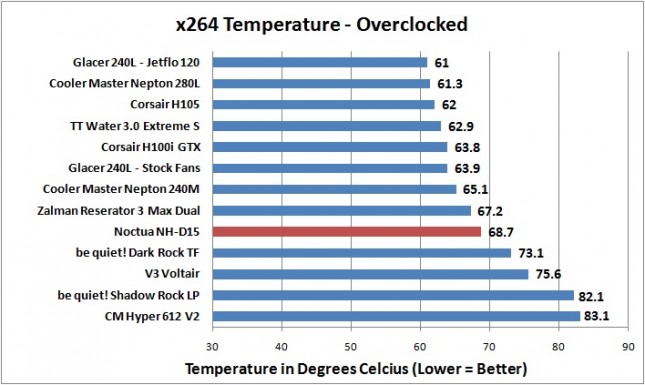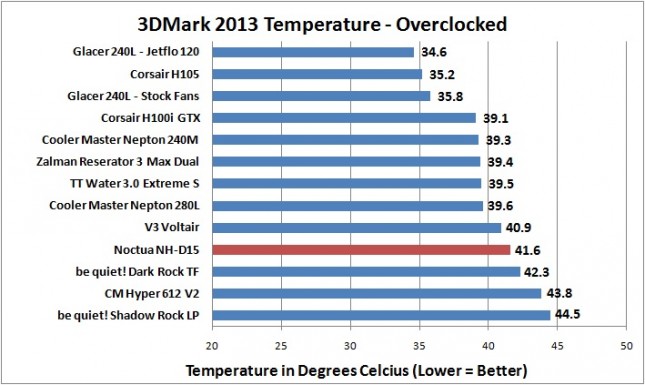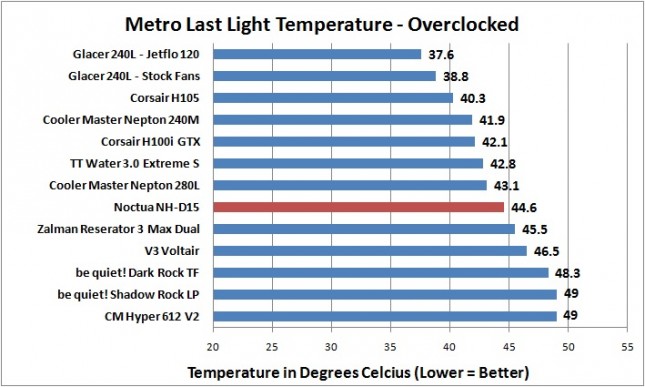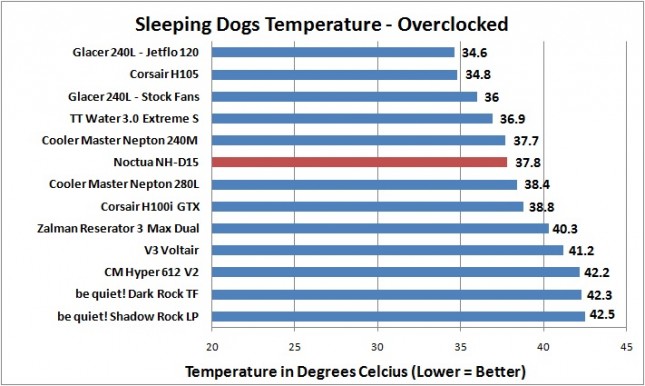Noctua NH-D15 Air CPU Cooler Review
Overclocking with the NH-D15
Many of the previous tests we chose not to overclock beyond the turbo frequency in order to show you what your average user would see, but we did find the limits of this particular processor without going too extreme on the voltage and will start to include those results. The 4770k will be overclocked to a 4.3GHz turbo boost at 1.270 volts, which is over the stock 1.193v. To push this particular 4770k stably to 4.4GHz required well over 1.4 volts, which the performance gains of a 100MHz increase was not worth the risk from that huge bump in voltage. Also understand that every processor reacts differently to voltage adjustments, so some may run slightly cooler or hotter at this same overclock frequency.
I did not start overclocking the 4770k until after my Cooler Master Glacer 240L review, so not all coolers were tested under the increased stress of an overclock.
Again, ambient temperature at the time of testing is 74 degrees Fahrenheit. To record temperatures, we used Core Temp, logged the temperatures for 15 minutes or while each program was active, and averaged all 4 cores.
Not all coolers were overclocked and benchmarked with Prime95. There were times that the cooler was already too hot under stock frequencies, and risking failure of my CPU to obtain an unrealistic synthetic benchmark’s results was not worth it. Instead, x264 will be a much better and realistic example of taxing a CPU heavily.
Prime95
X264
3D Mark 2013
Metro Last Light
Sleeping Dogs
Overall Results: Air coolers are something that I don’t really set high expectations for, but Noctua’s NH-D15 did very well! I found the D15 beating out every other air cooler that I have tested with ease, in nearly every test again, and it put itself in the territory of liquid cooler performance.

